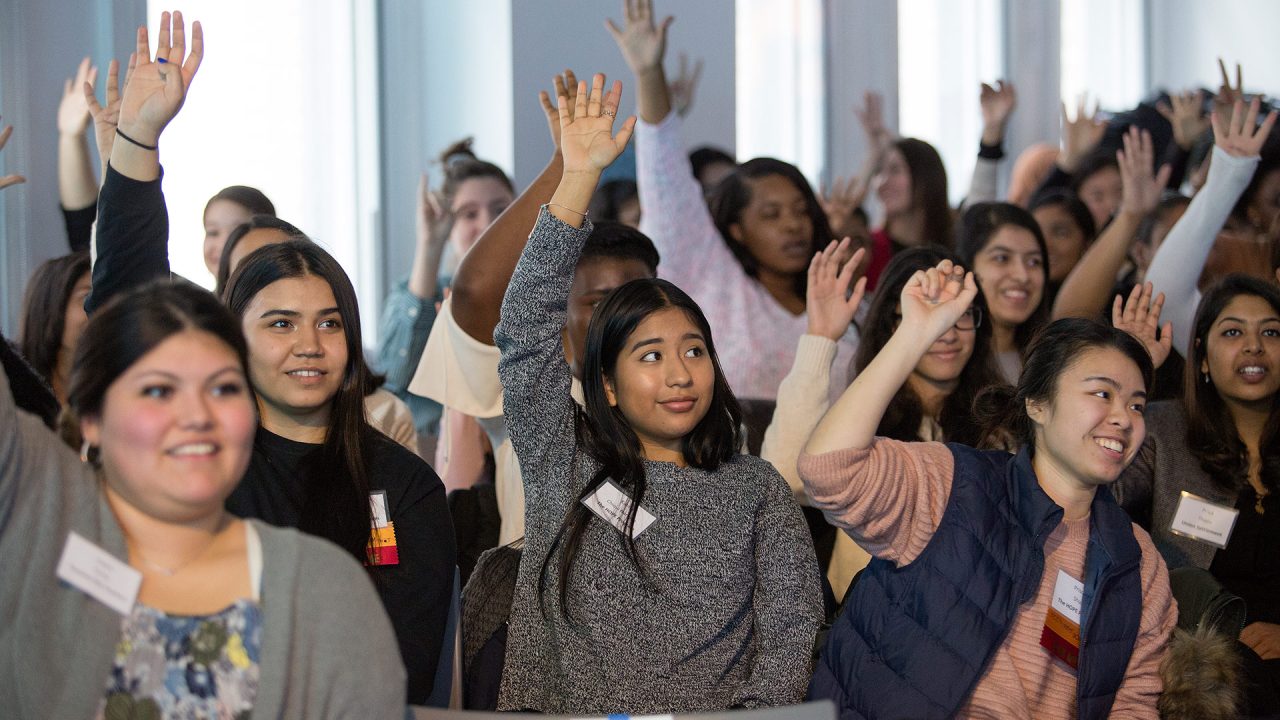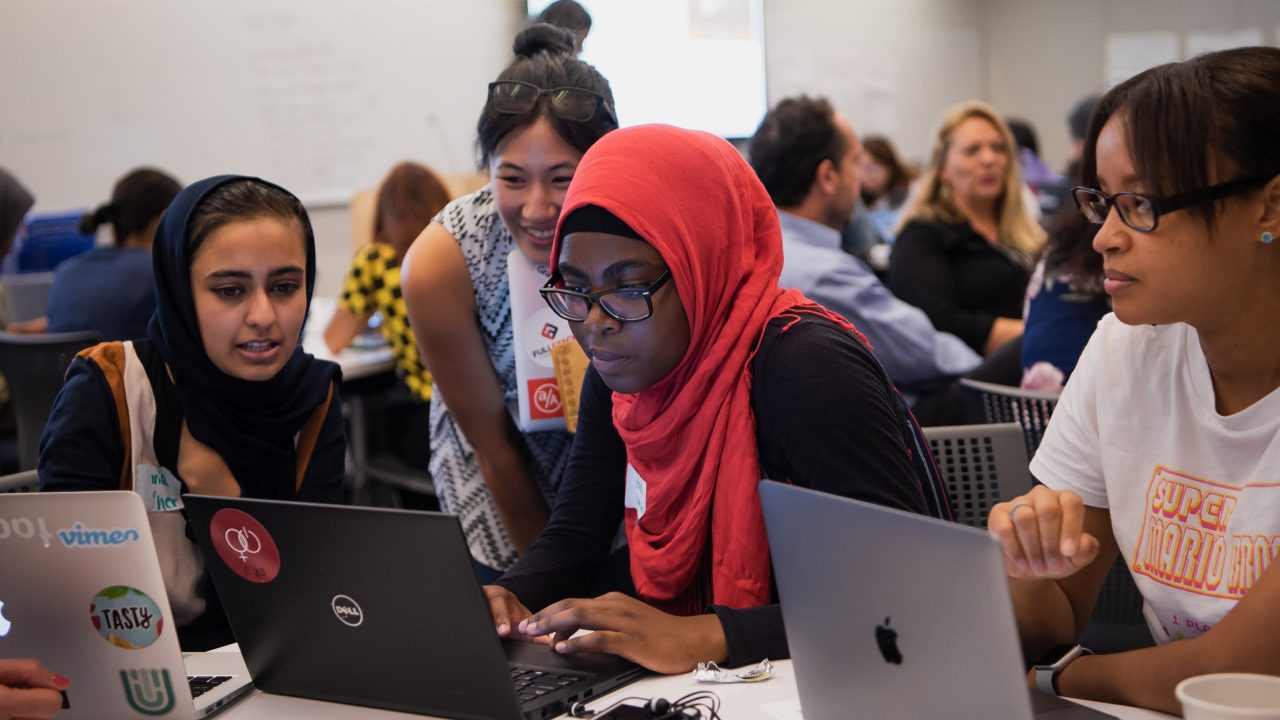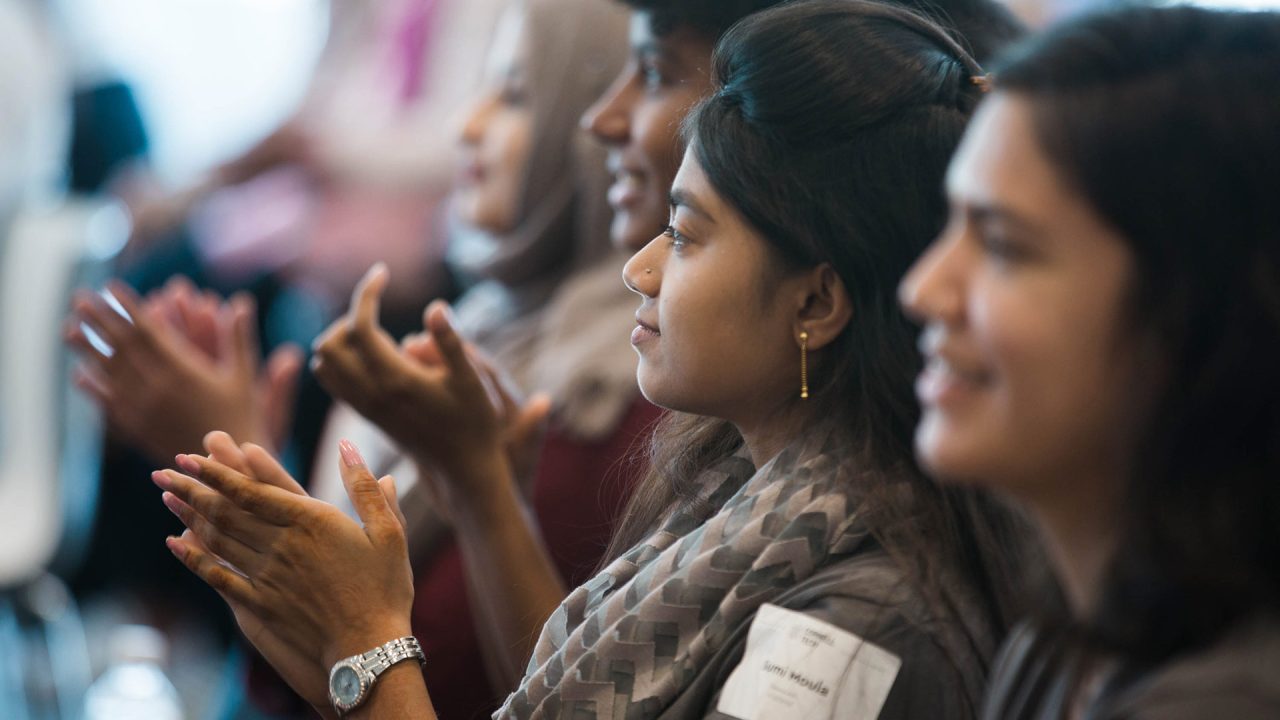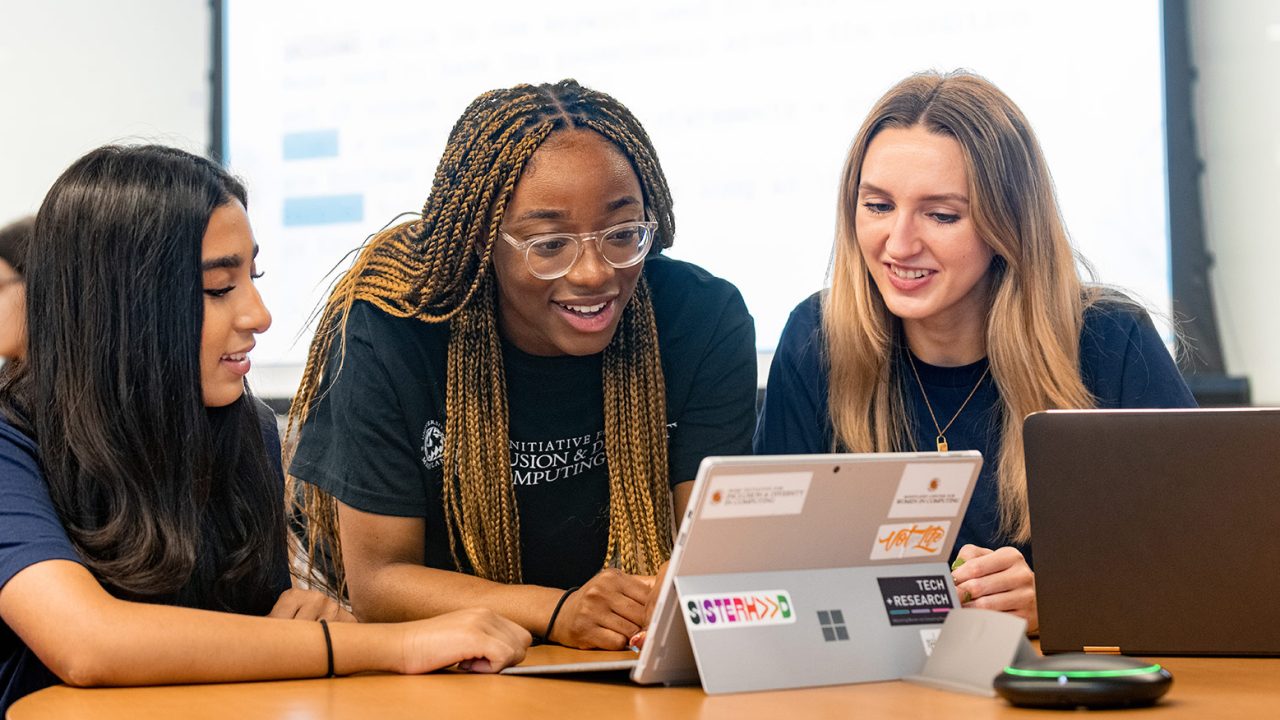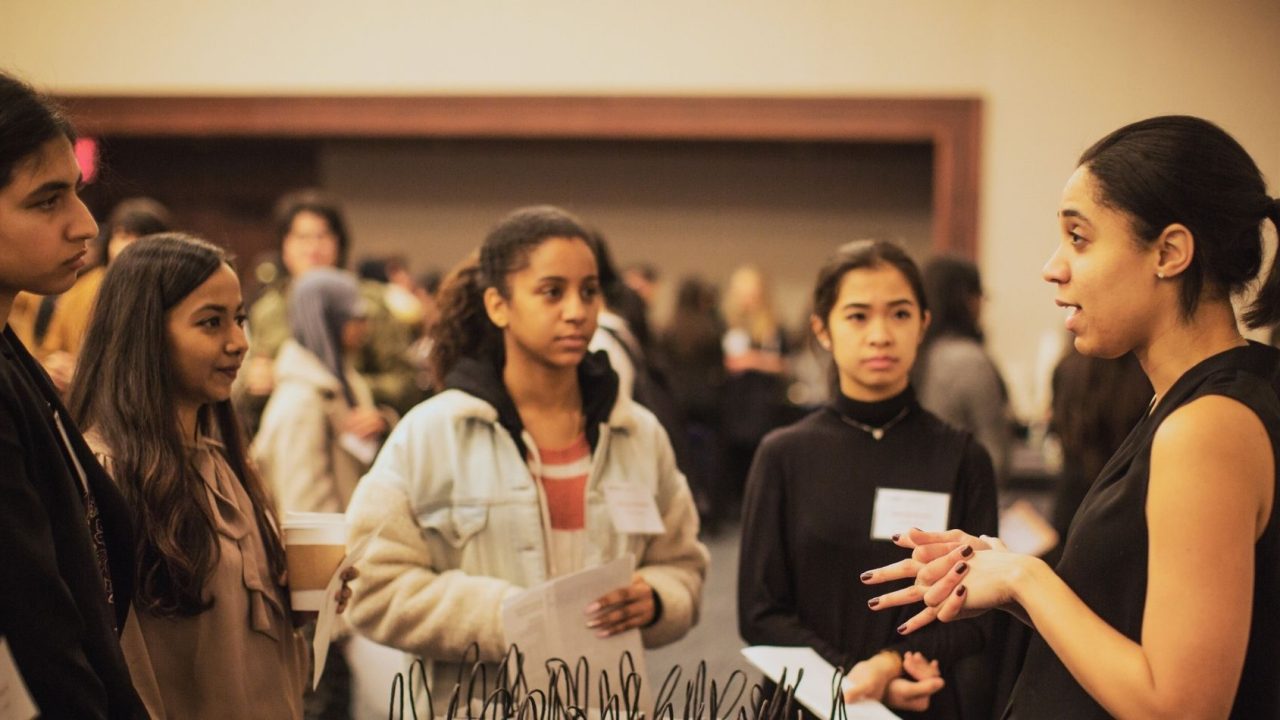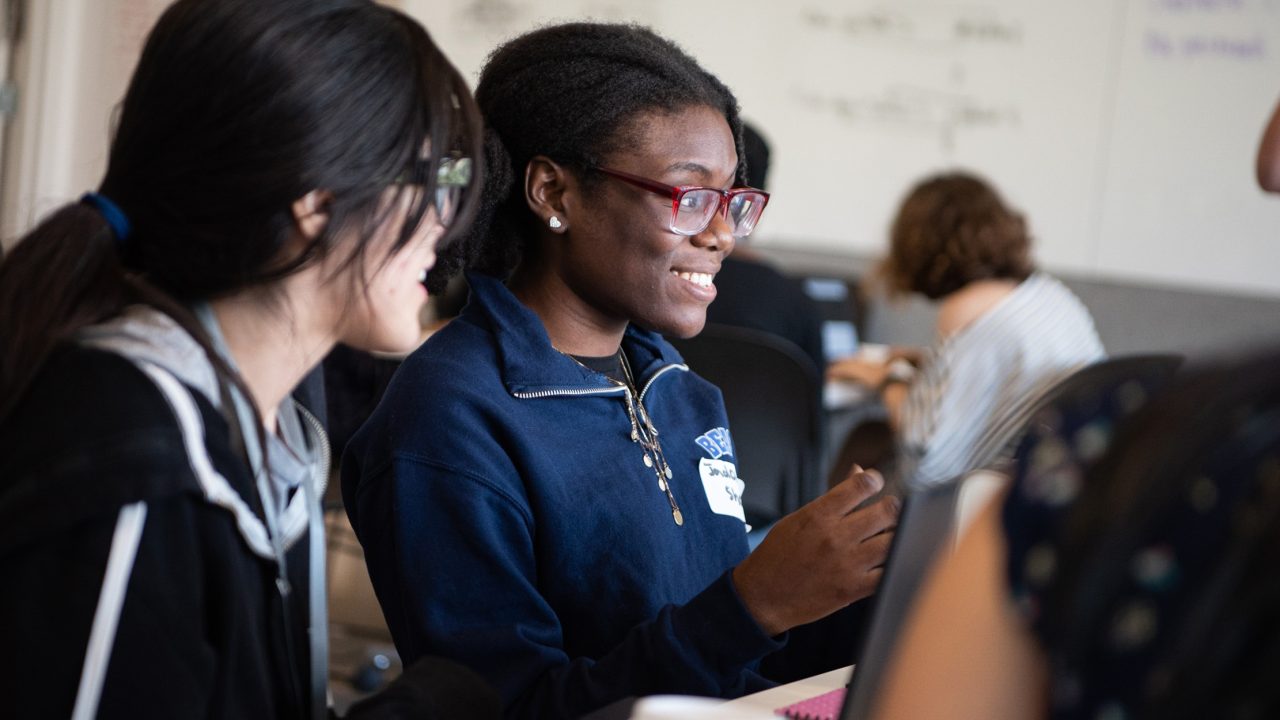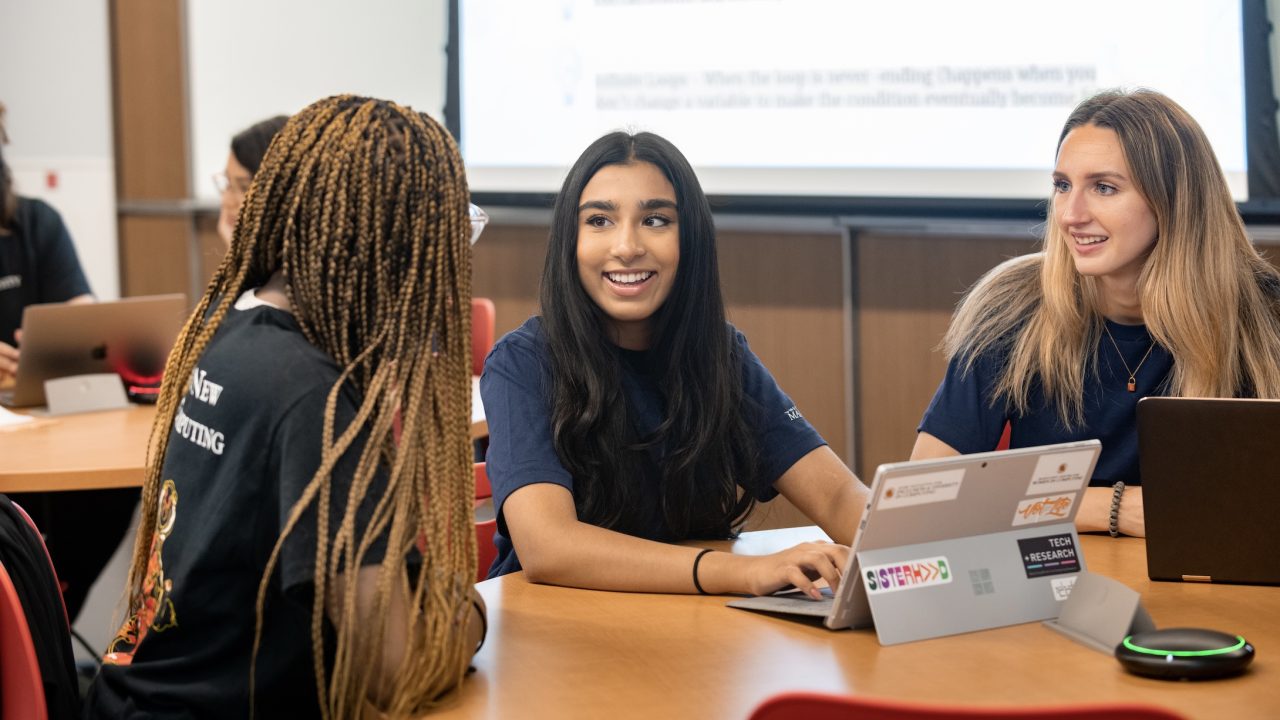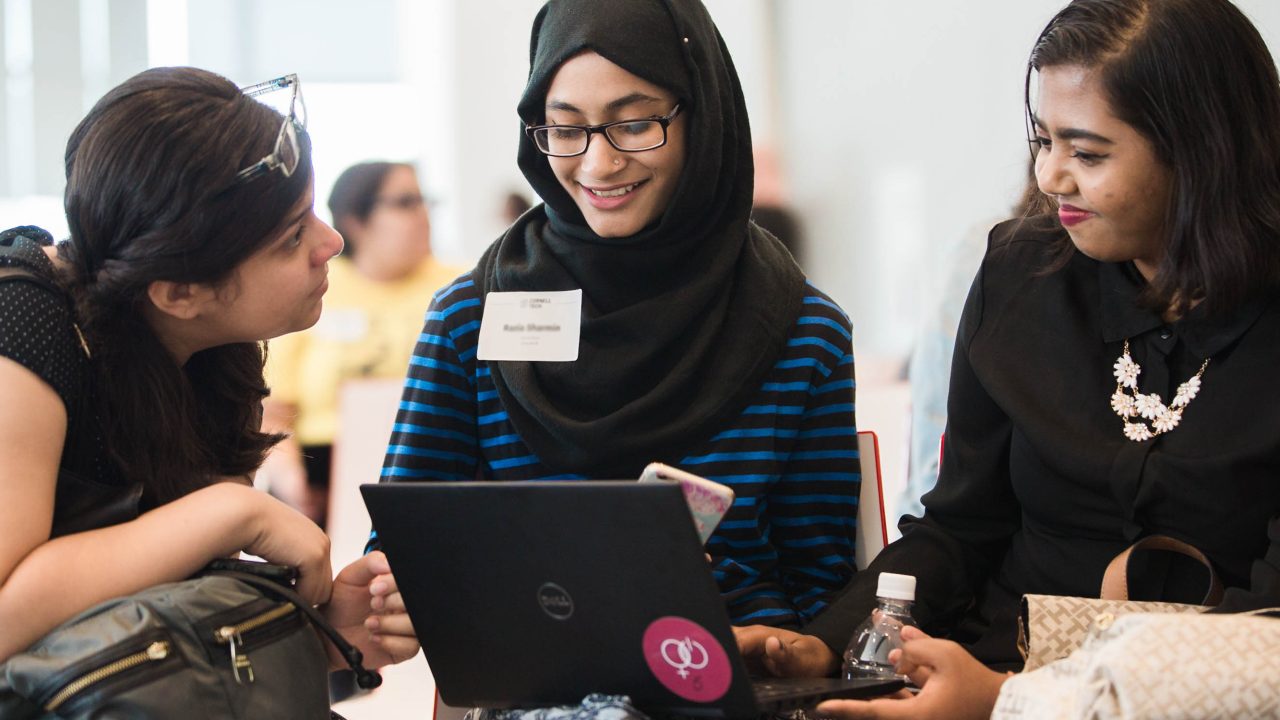Representation in computer science and AI is critical. It impacts the algorithms that power decision-making, the products that are built, and the ways in which we approach solving complex challenges.
Organizations like Break Through Tech are working towards helping women overcome gender barriers that are both pervasive and persistent in the tech industry. Currently, the percentage of computer science and artificial intelligence PhDs awarded to women languishes at 20 percent. At the cross-section of academia and the private sector, the organization helps launch women into technology-related degrees and careers.
With offerings in computing and artificial intelligence, Break Through Tech programs begin during students’ early college years for young women, with a particular emphasis on welcoming Black, Latina, Indigenous, and first-generation women, trans, and nonbinary students. The program is not only free, it also pays a stipend, allowing women to participate who would otherwise need to work to pay college expenses.
Albina Krasykova and Tammy Babad are two such students. As fellows in the AI program, they credit Break Through Tech with exposing them to meaningful career development opportunities and positioning them for success in the tech industry after graduation.
The Challenge
Gender inequality in tech is a long-documented problem, and it’s only getting worse. Only 25 percent of computing jobs in the U.S. are held by women, down from 32 percent in 1990, and unchanged since 2016. Add to that the mere two percent of women who graduate with a degree in computer science, and you have a field dominated by men.
Leading researchers of fair and ethical AI standards, such as Sharla N. Alegria, have found that lack of diversity in a field leads to a greater risk of unintentional discrimination. Too often, the people building a model or algorithm don’t know enough about the marginalized communities it is going to impact to effectively develop responsible and ethical technological solutions.
Take the classic example of crash-test dummies. Early designs of airbags were modeled for male bodies, leading to an entirely avoidable number of women killed by airbags. In fact, only recently, in 2022, was a dummy modeled after an actual female body instead of simply a smaller version of the male dummy.
Two seniors majoring in computer science at the City College of New York (CUNY) — Albina Krasykova and Tammy Babad — know first-hand what it’s like to be one of very few women studying what’s still considered a male-centered field.
“At CUNY, literally thousands of people are majoring in computer science — so it’s even more noticeable that as a woman, you’re a minority,” said Babad.
“I have always been inspired by innovative technologies and the leaders developing solutions that will impact the whole world’s dynamics. But when it came time for me to start my career in tech, I found it to be quite challenging, especially as a woman,” said Krasykova. “I kept asking myself: ‘Am I really capable of doing something this incredible as a career? Can I actually be a leader in tech? Am I smart enough?’”
So when both women were given the opportunity to develop hands-on skills in artificial intelligence alongside other women and with the guidance of experienced female mentors, they jumped at the chance.
The supportive mentorship I received at Break Though Tech helped me to believe in myself and walk towards my goal with more confidence. With their help, I started to understand that I am enough to pursue a career in tech, and challenge the world to be a better place.
Albina Krasykova, AI Program Student
The Solution
Launched in 2016 with support from founding sponsors Verizon and Accenture, Break Through Tech partnered with CUNY with one central goal: to increase the number of women graduating with degrees in computer science and related tech disciplines.
Over the next three years, CUNY saw incredible progress: women declaring computer science and related disciplines as their major increased by 61.5 percent and women graduating with relevant bachelor’s degrees increased by 95.4 percent.
Buoyed by these results, Break Through Tech began replicating its programming model in other cities, including Chicago, Washington, DC, Miami, Los Angeles, and Boston. Pivotal Ventures, an initiative of philanthropist Melinda French Gates, signed on as an investor, along with the Cognizant Foundation and Verizon.
Through deep engagement with nearly 200 industry partners, Break Through programs provide not only theoretical instruction but also practical tools to help students launch their tech careers.
“The program started with a summer [machine learning] engineering course where I learned about data analysis pipelines, training and validating ML models, and common ML/AI libraries—practical skills to help qualify me for entry-level jobs in the field,” said Babad. “And then this fall, I had an incredible experience in the AI Studio, where I worked with a team of peers on real-world projects and created a portfolio of AI solutions.”
As part of the experience, students have access to ongoing one-on-one mentorship—both from women professionals involved with the program and peers in their cohort.
“Honestly, the group of women I was working alongside felt like family,” said Krasykova.
Babad agreed, emphasizing the value of networking: “I remember so many instances where I was talking to other students and they would learn about what I was doing and say, ‘oh I should connect you to this person. Or you should contact this company, they’d be really interested in that.’ We were all there to support and elevate each other, not compete,” she said.
I was given access to amazing resources and an incredible mentor all while learning about one of the coolest technologies in the world—artificial intelligence. What can be better than that?”
Tammy Babad, AI Program Student
The Takeaway
In order to grow and diversify the tech talent pipeline, more intentional efforts are needed around recruitment, retention, and ongoing support. And when more women are in that pipeline, the industry will flourish.
“As a student of Break Through Tech, I can confidently say that the organization has had a huge impact on my journey to pursue a career in the tech industry,” said Babad. “I was given access to amazing resources and an incredible mentor all while learning about one of the coolest technologies in the world—artificial intelligence. What can be better than that?”
With that goal in mind, Break Through Tech is excited to expand to more cities nationwide and has a long-term vision of growing tech hubs across the country that will activate and align both sides of a city’s tech ecosystem: academia and industry.
“This organization is inspiring women to work on the most innovative AI projects, while also building a healthy community of female leaders,” said Babad. “Leaders who not only care about one another but are focused on creating a positive impact on the world.”
Organizations like Break Through Tech are helping to engage and inspire the next generation of women technologists—technologists that have the skill set and confidence to break down the gender barriers the tech industry has upheld for so long.
“We are living in a world where technology grows more powerful every day,” said Krasykova. “If we can have a diverse pool of people making decisions about what our tech will do and how it will do it, the possibility of creating fair and equitable solutions to modern problems will be closer in reach.”
